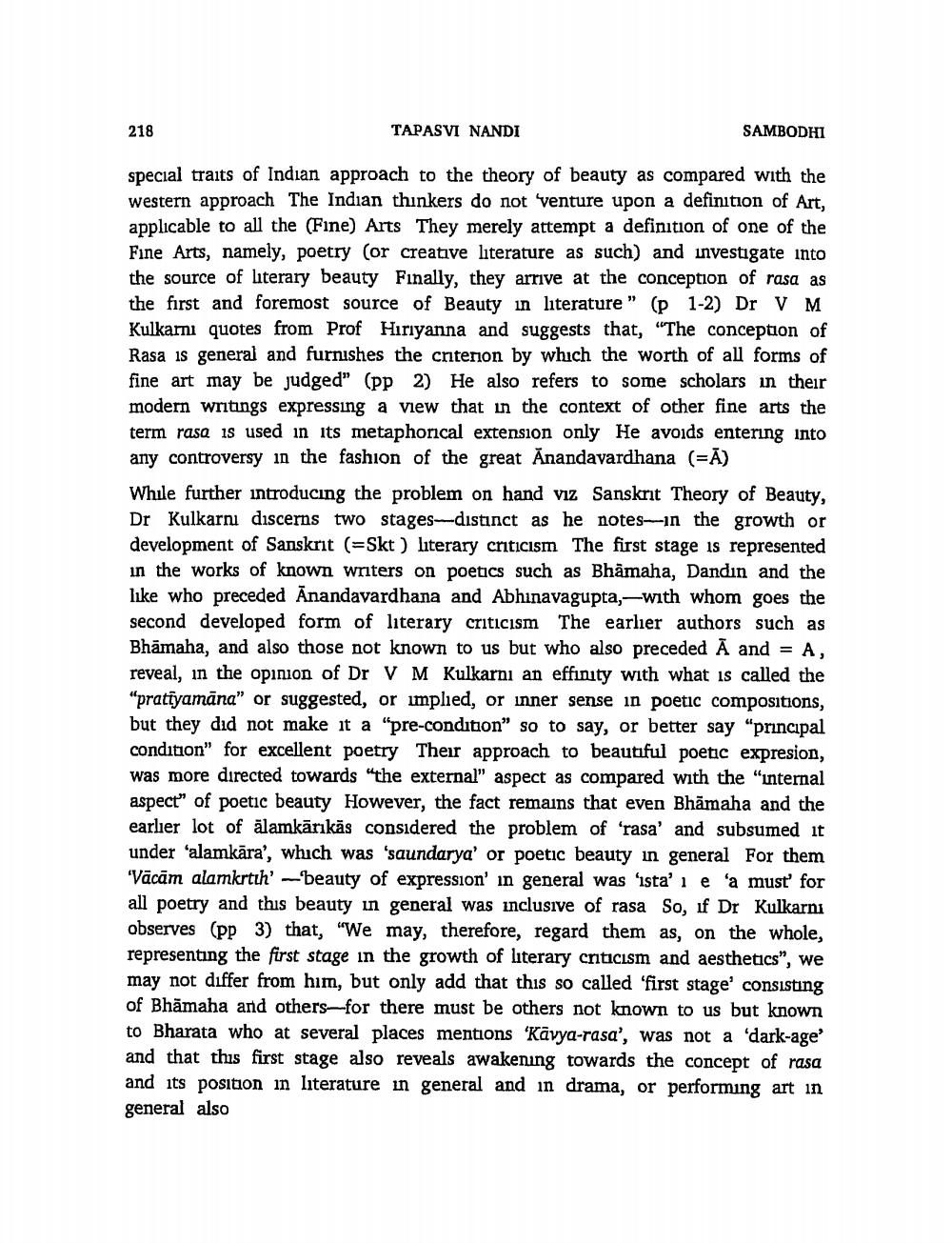________________
TAPASVI NANDI
special traits of Indian approach to the theory of beauty as compared with the western approach The Indian thinkers do not 'venture upon a definition of Art, applicable to all the (Fine) Arts They merely attempt a definition of one of the Fine Arts, namely, poetry (or creative literature as such) and investigate into the source of literary beauty Finally, they arrive at the conception of rasa as the first and foremost source of Beauty in literature" (p 1-2) Dr V M Kulkarni quotes from Prof Hiriyanna and suggests that, "The conception of Rasa is general and furnishes the criterion by which the worth of all forms of fine art may be judged" (pp 2) He also refers to some scholars in their modern writings expressing a view that in the context of other fine arts the term rasa is used in its metaphonical extension only He avoids entering into any controversy in the fashion of the great Anandavardhana (-A)
218
SAMBODHI
While further introducing the problem on hand vız Sanskrit Theory of Beauty, Dr Kulkarni discerns two stages-distinct as he notes in the growth or development of Sanskrt (Skt) literary criticism The first stage is represented in the works of known writers on poetics such as Bhamaha, Dandin and the like who preceded Anandavardhana and Abhinavagupta,-with whom goes the second developed form of literary criticism The earlier authors such as Bhamaha, and also those not known to us but who also preceded A and A, reveal, in the opinion of Dr V M Kulkarnı an effinity with what is called the "pratiyamāna" or suggested, or implied, or inner sense in poetic compositions, but they did not make it a "pre-condition" so to say, or better say "principal condition" for excellent poetry Their approach to beautiful poetic expresion, was more directed towards "the external" aspect as compared with the "internal aspect" of poetic beauty However, the fact remains that even Bhamaha and the earlier lot of alamkärikäs considered the problem of 'rasa' and subsumed it under 'alamkära', which was 'saundarya' or poetic beauty in general For them "Vācām alamkrtth' beauty of expression' in general was 'ista' e 'a must' for all poetry and this beauty in general was inclusive of rasa So, if Dr Kulkarni observes (pp 3) that, "We may, therefore, regard them as, on the whole, representing the first stage in the growth of literary enticism and aesthetics", we may not differ from him, but only add that this so called 'first stage' consisting of Bhamaha and others-for there must be others not known to us but known to Bharata who at several places mentions Kävya-rasa', was not a 'dark-age" and that this first stage also reveals awakening towards the concept of rasa and its position in literature in general and in drama, or performing art in general also




